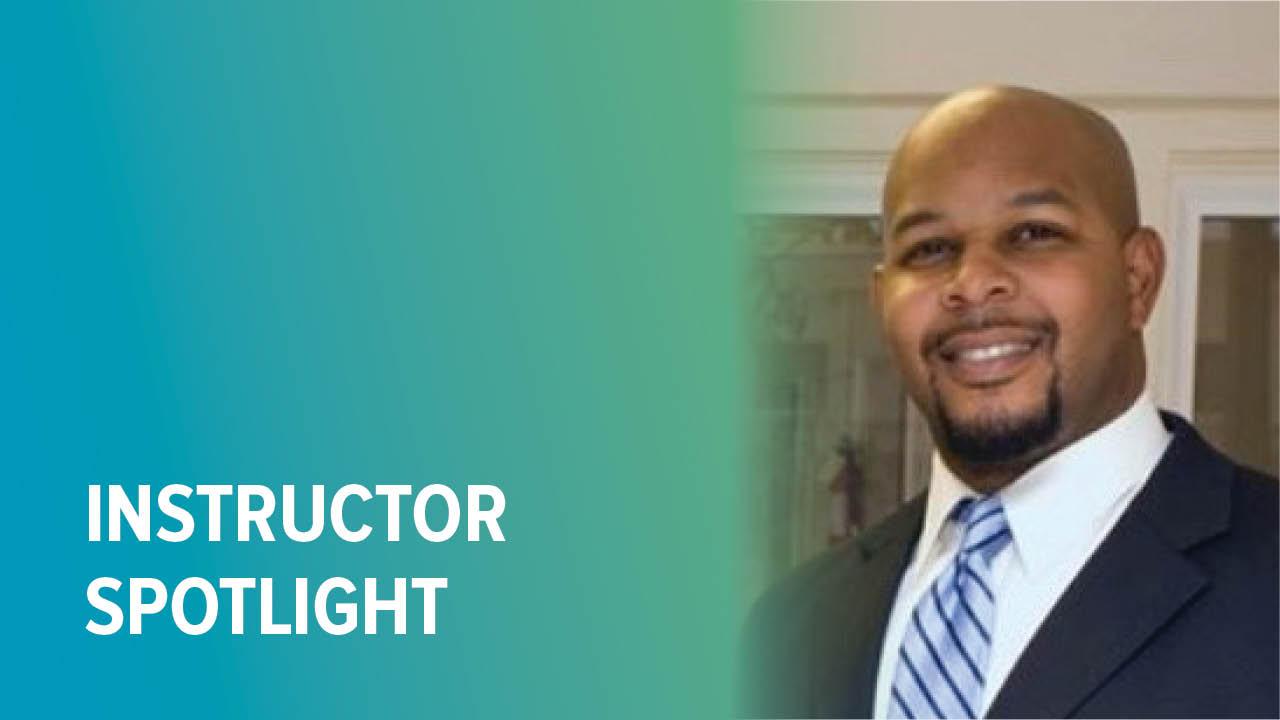
Instructor Spotlight: Demond Philson
In his 19 years as an attorney in employment law, Demond Philson has become an expert in navigating the human resources (HR) system. After attending law school at the University of San Francisco, he joined a firm in Sacramento and has been in the field ever since. Philson translated his love for learning into a passion for teaching, joining UC Davis Continuing and Professional Education (CPE) in 2012 as an instructor of Employment Law in the Human Resource Management Program.
What Philson loves most about working in employment law is guiding both the employee and the employer through the difficult legal system and teaching them about their legal protections and obligations. “Employment law is unique from other HR specialties because it gives you an opportunity to learn about employment relationships from beginning to end, from the hiring perspective to either retirement or termination.” He believes employment law is holistic and affects every aspect of a work environment, whether it’s employee discrimination laws or the right to take a leave of absence to laws that will protect the employer and their business.
Learning the Basics
According to Philson, taking courses like those in CPE’s HR Management program can be highly beneficial for anyone who wants to pursue a career in HR. “Our Human Resource Management Certificate Program has a lot to offer regarding personal development and education in the field,” he explains. “I’ve had a lot of students go on to become HR managers or HR directors and I think that the program does a great job of getting individuals who are considering that career path into those positions.”
Philson adds that in his Employment Law class, students can expect to gain skills that will allow them to have an immediate impact in the field. “The course will provide you with a roadmap of how to navigate through employment law issues that are real-life scenarios that often do come up within the workplace,” he explains. His course covers topics such as the hiring and firing of employees, liability of employers for the actions of an employee, as well as leave and disability laws that protect both the employer and the employee. “I think one of the most interesting aspects of the course is that you will learn about personal rights, including rights to privacy, especially within the social media era that we have today.”
The Future of Employment Law
Considering a career in HR?
Contact an enrollment coach. They can work with you one-on-one to answer your questions and find the right courses to fit your schedule and goals.
Philson believes that the pandemic has had a direct impact on the field of employment law. “One of the most up-to-date trends in employment law today is COVID leave or COVID considerations,” he says. “I see employment law taking the direction and going into a lot more teleworking opportunities, as well as laws that affect the employment environment, based upon the COVID response.”
As times change, Philson thinks employment law will follow other social movements. “I see a lot more protected classes being acknowledged, both at the federal level and the state level. It’s not just race, gender and religion, but also a lot of protections related to the LGBTQ community,” he reflects. “Another trend that I see coming about in the future is age discrimination protections, because we have a lot of baby boomers who are getting older.”
What Makes a Good HR Professional?
For anyone considering a career in HR, Philson recommends gaining a solid foundational knowledge of federal and state laws that affect employment. He says that being empathetic and keeping the human element of HR in mind will go a long way. “Most importantly,” he emphasizes, “I think that an HR professional should be able to separate themselves personally from an actual employment law scenario and look at it with unbiased eyes to get a clear analysis from applicable laws without implementing their personal feelings into it.”
Watch the video below to hear more from Demond Philson.
- Related article: Career Outlook: Human Resources
